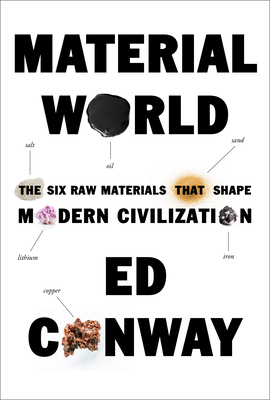More on this book
Community
Kindle Notes & Highlights
by
Ed Conway
Read between
July 1 - July 17, 2024
It is a useful reminder, anyway, that among the many casualties in the coming shift from gasoline to electric power will be the conventional wisdom about what a car company should and shouldn’t do.
As things stand, China controls about 80 per cent of the world’s battery production capacity. Indeed, according to Benchmark Mineral Intelligence, one of the chroniclers of this new era of gigafactories, even if all the European and American grand visions for battery production actually materialised, by the beginning of the 2030s China will still be turning out seven out of every ten batteries produced anywhere in the world.[2]
For not only do Chinese companies control about 80 per cent of battery production, they also control about 80 per cent of the manufacture of the materials that go into these batteries.
while the rest of the world panics about China’s dominance of the battery supply chain, many in Beijing are simultaneously panicking about China’s reliance on the rest of the world for their raw materials. So it goes in the Material World.
Then there are lithium-ion batteries, whose cost per kilowatt hour has fallen from $7,500 in 1991 to $181 in 2018—a staggering 97 per cent decline.
meaning the factories could turn out even more vehicles. As Wright observed this steady fall in prices and improvement in quality, he came up with a rule of thumb: every time the production of an item doubles, its cost falls by about 15 per cent. And Wright’s law, as it is sometimes called, has been eerily successful at explaining the fall in the price of everything from container ships to specialised plastics.
There is a paradox here. Without fossil fuels, roughly half of us would not be alive. Yet now, the carbon emissions from those fossil fuels are causing problems that threaten us all.
We will, if policymakers have any sense, have built many new nuclear power stations (uranium being much further up the energy-density ladder than nearly everything else) and will have electrified road transport.
On the basis of one calculation, we will need to mine more copper in the next 22 years than we have in the entirety of the past 5,000 years of human history.[7]
and sheltered.[12] As someone who has worked my entire life in the ethereal world, enjoying the spoils of the Material World without ever getting my hands dirty, the journey recounted in this book has been somewhat chastening.
These six substances helped us survive and thrive. They helped us make magic. They can do it again.


